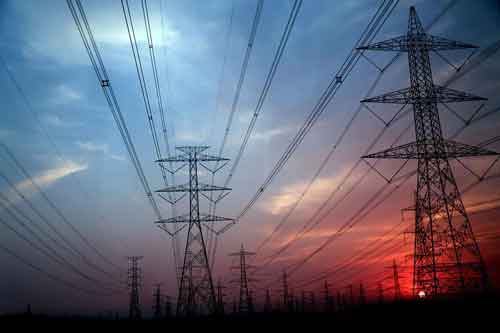States say Bush's proposal on air pollution too hazy
CHICAGO, ILLINOIS - Five Midwestern states are considering new rules that would require coal-fired power plants to dramatically curb air pollution linked to lung damage, heart disease and respiratory ailments.
Aimed at the region's biggest polluters, the proposal would hold coal plants to stricter emissions standards than the Bush administration is calling for under its Clear Skies legislation, a revision of the Clean Air Act that a Senate committee is scheduled to consider February 16.
Aging coal plants in Illinois, Indiana, Michigan, Ohio and Wisconsin - which account for about a quarter of the sulfur dioxide and nitrogen oxide released by the nation's power plants - also would have to meet earlier deadlines for cleaning their smokestacks.
It is far from certain that the five states will act on their own. But the region's environmental regulators have concluded that more aggressive standards for coal plants are the quickest and most cost-effective option to clear the air of pollution that can trigger a variety of health problems and take years off lives.
If adopted by each of the states, the regional endeavor could require most of the coal plants in Illinois to install expensive pollution controls. The goal would be fewer days when the urban Midwest is blanketed with smog, haze and lung-damaging soot.
Air pollution is so bad on some days in the Chicago area that state officials advise people to limit outdoor activities. However, it is unclear whether governors and lawmakers are willing to take on an industry accustomed to getting its way in state capitals.
Pressure from utilities led Illinois Gov. Rod Blagojevich's administration last fall to abandon a proposal that would have applied only to Illinois coal plants. At the time, the Illinois Environmental Protection Agency said making state rules stricter than federal standards would drive up electric rates and make the state's power supply less reliable.
During his State of the State address earlier this month, Blagojevich said developing a regional approach is one of his top priorities as he prepares to lead a group of Midwestern governors.
"We need to reduce emissions that come from old coal-fired plants," Blagojevich said. "If we work together, we can protect jobs and the environment."
Illinois officials said they would prefer a national strategy to reduce air pollution, but they don't think the Bush administration's proposals go far enough or fast enough.
A report prepared for the region's environmental regulators suggests two potential standards for emissions of sulfur dioxide and nitrogen oxide, byproducts of coal combustion that help create smog and acid rain and form tiny particles of harmful pollution in the atmosphere.
One standard would be based on commercially available pollution controls for older plants and another on limits set for a handful of new coal plants going up across the country.
Like the Bush administration's proposals, the regional approach would rely on a trading scheme where individual utilities could purchase the right to emit pollutants as long as overall pollution levels remained below a certain limit. But the limits set by the states would likely be lower.
Neither the national or regional proposals addresses carbon dioxide emissions, which are on the rise from power plants and are linked to global warming.
Related News

Russia-Ukraine Agreement on Power Plant Attacks Possible
KYIV - In a significant diplomatic development amid ongoing conflict, Russia and Ukraine are reportedly exploring the possibility of reaching an agreement to halt attacks on each other’s power plants. This potential cessation of hostilities could have far-reaching implications for the energy security and stability of both nations, as well as for the broader European energy landscape.
The Context of Energy Warfare
The conflict between Russia and Ukraine has escalated into what many analysts term "energy warfare," where both sides have targeted each other’s energy infrastructure. Such actions not only aim to undermine the adversary’s military capabilities but also have…




